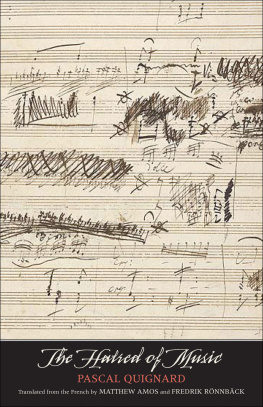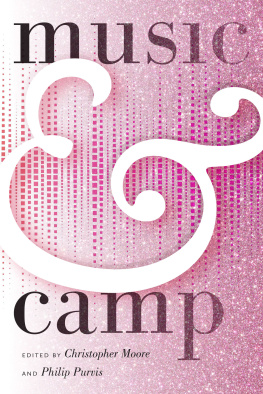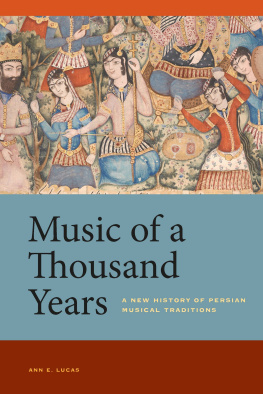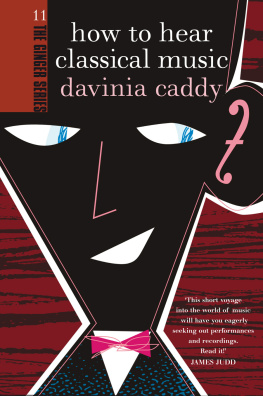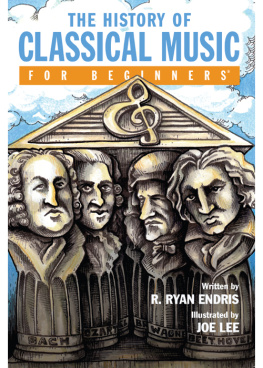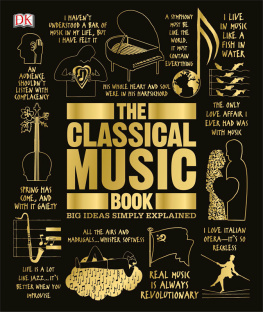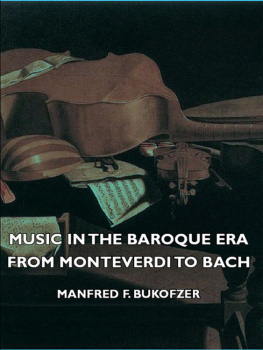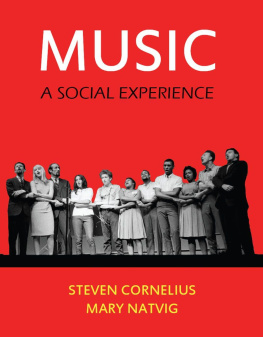
The Hatred of Music The Hatred of Music PASCAL QUIGNARD TRANSLATED BY MATTHEW AMOS
AND FREDRIK RNNBCK


The Margellos World Republic of Letters is dedicated to making literary works from around the globe available in English through translation. It brings to the English-speaking world the work of leading poets, novelists, essayists, philosophers, and playwrights from Europe, Latin America, Africa, Asia, and the Middle East to stimulate international discourse and creative exchange.
English translation and afterword copyright 2016 by Yale University. All rights reserved. Originally published as La haine de la musique .
Copyright ditions Calmann-Lvy, 1996.
This book may not be reproduced, in whole or in part, including illustrations, in any form (beyond that copying permitted by Sections 107 and 108 of the U.S. Copyright Law and except by reviewers for the public press), without written permission from the publishers.
Yale University Press books may be purchased in quantity for educational, business, or promotional use. For information, please e-mail (U.K. office).
Set in Electra and Nobel types by Tseng Information Systems, Inc.
Printed in the United States of America.
Library of Congress Control Number: 2015940943
ISBN 978-0-300-21138-2 (paper : alk. paper)
A catalogue record for this book is available from the British Library.
This paper meets the requirements of ANSI / NISO Z39.48-1992 (Permanence of Paper).
10 9 8 7 6 5 4 3 2 1
CONTENTS
First Treatise THE TEARS OF SAINT PETER
We wrap in cloth an extremely injured and infantile acoustic nudity, which remains without expression deep within us. This cloth is of three kinds: cantatas, sonatas, poems.
That which sings, that which sounds, that which speaks.
With the help of this cloth, just as we try to keep most of the noises of our body from the ears of others, we keep from our own ears certain more ancient sounds and groans.

Mousik says a verse by Hesiodpours small libations of oblivion on sorrow. Sorrow is to the soul in which memories build up what dregs are to the amphora filled with wine. All we can wish for is that they settle. In ancient Greece, the mousa of mousik was named Erato. She was a prophetess of Pan, the god of panic, traveling in a state of trance under the effect of drink and the consumption of human flesh. Shamans were inspired by animals, priests by immolated humans, bards by the muses. Always victims. Works, however modern they pretend to be, are always more untimely than the times that welcome or reject them. They are always inspired by panickeas. The deposit in the amphora: the cadaver, the dead that is peculiar to wine.

It was Athena who invented the flute. She fashioned the first flute (in Greek aulos , in Latin tibia ) to imitate the cries she had heard escape the throat of the gold-winged, boar-tusked snakebirds. Their song fascinated, immobilized, and allowed them to kill in the moment of paralyzing terror. The paralyzing terror is the first moment of omophagic panic. Tibia canere: to make the tibia sing.
Marsyas the Silenos pointed out to Athena that, as she imitated the song of the Gorgon by blowing in her tibiae , her mouth was stretched out, her cheeks swollen, her eyes bulging. Marsyas cried out to Athena:
Put down the flute. Give up that terrifying song and the mask disarranging your jaws.
But Athena did not listen to him.
One day, in Phrygia, as the goddess was playing on the bank of a river, she caught sight of her reflection in the water. The image of an occupied mouth frightened her. She immediately threw her flute far into the reeds along the bank. She fled.
Then Marsyas picked up the flute the goddess had abandoned.

I am examining the bonds between music and acoustic suffering.

Terror and music. Mousik and pavor . I find these words to be inextricably linkedhowever allogenic and anachronistic they may be in relation to each other. Like the sex and the cloth that covers it.

Cloth is used to bandage a gaping wound, to hide a shameful nudity, to wrap the infant coming out of the maternal night and discovering its voice, letting out its first howl, initiating the rhythm peculiar to the animal pulmonation that will be its own until death. The old Roman verb solor diverts from our obsessions. It assuages what weighs on the human heart and sweetens the bitterness that eats away at it. It dulls what painfully lurks there and ceaselessly threatens to rise up, to leap out in anguished and feverish panic. That is why we say in French that the muse amuses pain. This is the origin of the word consolatio . When the Roman Empire disintegrated province by province, when the social bond and the religio that united the territories were torn asunder only to be reconstructed according to the will of the Christian party and the barbarians who themselves were Christianat least Aryanin the early years of the sixth century, a Roman scholar was imprisoned by order of king Theodoric of the Ostrogoths, first at Calvenzano, later in a tower in Pavia. There, the young scholar, the patrician, the Neo-Platonist, the Porphyrian, the Ammonian Boethius, husband to the great-great-granddaughter of Symmachus, husband forever deprived of his wifes body, composed De Consolatione Philosophiae . Has philosophia ever been much bolder than this solor of the soul? The book was interrupted by the stroke of an axe, one fall day. It was October 23, 524. His name was Anicius Manlius Torquatus Severinus Boethius. Before his decapitation, in the jail in Pavia, the spirit of the world of the dead, the imago , the consolatory figure appeared to him in the form of a woman. I quote Prosa I in the first book of the Consolatio: As I meditated in silence, as I noted down my silent groan on the tablet with my stylus, I sensed that an immense woman had risen above my head, standing very straight, now young, now old. Her eyes were two flames The Conservatory. The Consolatory. Joseph Haydn noted, in the small journals/checkbooks he would bring with him on his travels, that he sought to assuage an old acoustic suffering that originated in Rohrau, on the border between Austria and Hungary, and that dated back to the 1730s: the murmur of the Leitha, the wheelwrights workshop, the illiterate father, the wood used in wheelwrighting, the familiarity with elm, ash, oak, hornbeam, the shafts, the wheels, and the beams, the blacksmiths anvil, the jolts of the mallets, the saws and their teethin a word, all the pathos of the childhood bond rushed forth into his rhythms. He defended himself by composing. Until the months leading up to his death, months during which these rhythms increasingly buried Haydn at a speed that prevented him not only from transforming them into melodies but even from noting them down. Both everything that cannot be translated into language in order to be retained and nothing that can be hailed by language to be expressed and put to death. The unverbalizable. Haydn said that within him were hammer blows as God heard them, nailing his living hands, hammering his joined, living feet, on a stormy day as he found himself fastened to a cross, at the top of a hill.
Next page
